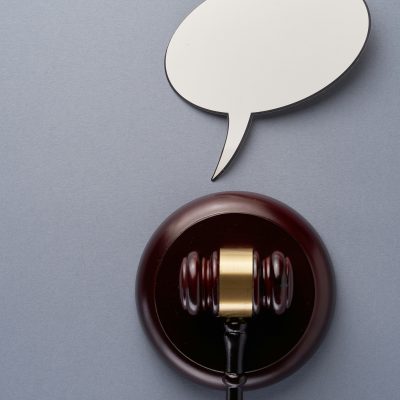We need a global alliance against the virus

“For Europe, the coronavirus crisis is worse than that of 2008 and it will determine the future of Italy in the European Union.” This view of the former Italian Prime Minister, Enrico Letta, is radical. For this reason, if we want to avoid the worst from a financial and political viewpoint, it is vital to provide a response to the pandemic that is equally strong: “We need a European agreement immediately with a view to extending it to the G7, in such a way as to address the pandemic within the rationale of a real and proper global war against the virus.”
Sometimes we only understand the significance of what we are experiencing with hindsight: What do you think will be the impact of COVID-19 on Europe?
“For our continent it is worse than the 2008 crisis because it affects both supply and demand. It is a situation that will last in the long term.”
Do you not foresee a rapid recovery when the virus is defeated?
“Nobody knows when the pandemic will end and when it is behind us, recovery will be extremely slow. I believe it will impact the entire year of 2020.”
Will we be able to take this strain in the long term?
“In 2008 the financial crisis hit a continent with a thriving economy and where the citizens placed their trust in the Union. Today however, COVID-19 has arrived in a Europe that has been weakened by Brexit and torn apart by the East-West divide, its societies exhausted by previous crises and its countries already with near-zero growth and large pockets of Euroscepticism.”
There’s not much room for hope.
“The situation is chilling, but we do have one advantage: we are aware of the mistakes made after Lehman Brothers and we can avoid them.”
What must Europe not do?
“At that time, for the Nordic citizens, the EU could not be the driving force in responding to the crisis and no effective policies were launched. This period lasted from 2008 to 2012, the year of Draghi’s “Whatever it takes” that the ECB deployed and of the birth of the ‘state-saving’ fund (ESM), two factors that reversed the trend.
In addition, the European Parliament, which has its finger on the pulse of our society, was excluded: its President, David Sassoli, is right to try his utmost to keep it open.”
So that’s the diagnosis but what’s the cure?
“The EU Commission under Ursula von der Leyen has taken an important first step by freezing the Stability and Growth Pact and the anti-trust rules, but not we must go beyond that. It is necessary to immediately launch a European Safety Net that would allow governments to take necessary measures without being attacked by markets or ending up in a bad way.”
In this regard, with the green light from Brussels to spend, is there not a risk that Italy might therefore be forced to request painful bailouts?
“Not if we implement this European Safety Net.”
How would it work?
“The ECB should launch its “Whatever it takes” stance, avoiding communication errors such as the verbal faux pas made by Christine Lagarde, and the ESM should be at the centre of the EU’s response to the crisis. It should use its immense firepower to support jobs, companies and banks and to help national budgets pledged to combating the virus. Furthermore, we should redirect the various EU Commission funds to support social measures and we need an EU budget for 2021-2027 equal to 1.3% of GDP as requested by the Parliament, overcoming the resistance of the Northern countries.”
Does relying on the ESM not mean risking the Troika?
“Given the emergency, the conditions required today to access the funds should be removed.”
Meanwhile, the States are doing their own thing with Schengen increasingly at risk.
“The arbitrary closure of borders is not effective against the virus but it has a negative effect on public opinion. What happened in Austria at the Brenner pass is serious and petty.”
So, is there a risk that the sense of belonging to the EU will just evaporate?
“With a heavy heart I feel the need to launch a red alert: with this crisis the future of Italy within the European Union is at stake. Our Country has become a Eurosceptic on account of both the 2008 crisis and the migrant crisis during which we were not aided by other States. The false message that we can only count on the Chinese and not on the Europeans is already being passed around.”
Do you fear that this time the sovereign virus will win out?
“If the EU is not capable of providing a response that is equal to the task. In Italy, concerning the pandemic, the nationalists have been getting the wrong end of the stick and now they are trying to regain strength using each and every faux pas to say that Europe is being destroyed. But I would invite anyone who believes that the EU is managing the situation badly to take a look at the decisions of Trump, Johnson and Bolsonaro.”
As for faux pas, however, Christine Lagarde has put in her tuppence worth.
“Yes, what she said was extremely serious but let us remember that in 2008 it took four years to reach the “Whatever it takes” stance, this time it only took four hours for Lagarde’s clarification.
Furthermore, at that time, the ECB’s measures and the German 550 billion euro package was something we could only have dreamed of.”
Would better coordination at global level not be required?
“After 2008 it was possible because Obama arrived, but it is certain that we should extend the European Safety Net to the G7 to include the United Kingdom, the US, Canada and Japan in the spirit of a global war against the virus.”
How do you appraise the reaction of the Italian government?
“We were the first democracy to face an unprecedented crisis and now those who ridiculed us only a few days ago are following in our footsteps. We are experiencing days that will be marked in the Country’s history: if we can keep this energy intact, the renewed spirit of unity between North and South and the end of squabbles between parties, Italy will manage to relaunch the economy and will emerge stronger as a nation.”




